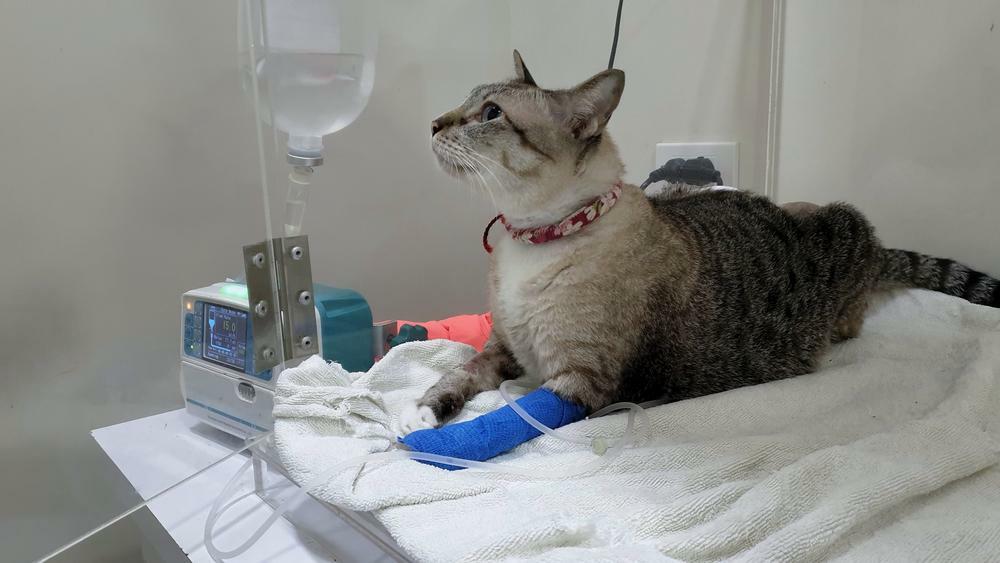Feline Upper Respiratory Infection (URI) can affect cats of all ages. Read below to see common symptoms and treatment.

Feline Upper Respiratory Infection
Feline Upper Respiratory Infection, or more commonly called URI is similar to a common cold in humans. It is caused by a virus with stressful environments and situations factoring in as well. URI are common in shelter settings, especially when numbers are on the rise and rooms become more cramped. With supportive care in a clean, quiet environment, most cases resolve in 7-14 days. URI is rarely fatal, but highly contagious.
Symptoms of URI
*Sneezing
*Runny nose or nasal congestion
*Red, swollen or runny eyes, or squinting
*Coughing or trouble swallowing
*Sores (ulcers) on the tongue, lips, nose or roof of mouth
*Fever
*Lack of appetite
*Hiding or decreased energy (lethargy)
Treatment of URI
URI is viral so it cannot be cured with antibiotics, though some vets may want to treat related symptoms with medication. Time, cleanliness and hydration are the most important factors when it comes to treating URI. Cats presenting symptoms should be separated from other cats in the household as URI is contagious. A low-stress environment for them to rest and recuperate is beneficial. Offering canned food, or gently warmed food may entice them to eat - when a cat cannot smell their food, they are unlikely to eat on their own. Use a warm, wet rag to gently clean discharge from eyes and nose at least once daily. In rare cases, IV fluids may be required to keep the cat hydrated. Remember to always wash hands with warm water and soap after handling ill cats.
When to see your vet
It is best to schedule an appointment with your vet any time you see these symptoms, just to ensure it is URI you are dealing with and not some other illness that could be treated differently. Keep an eye on your pet and call the vet if you see any of the following:
*not eating for more than 24 hours
*green or yellow discharge from nose
*difficulty breathing - panting or breathing through open mouth
*vomiting or diarrhea lasting more than 24 hours
*little to no improvement after one week of at home care
*unresponsive
URI in the Shelter
When shelters start to become overcrowded, felines begin to get stressed and come down with URI. It is very important for staff and visitors to do their best to limit time with these cats. As much as we want to spent extra time with ill animals, giving some extra TLC, letting them know they are being cared for, it is best to avoid contact. These cats are extremely contagious and petting a healthy cat after spending time with one diagnosed with URI can spread the virus. This is why kennels have drapes over them and ring locks on the latch as well as rooms being locked. If you ever have reason to question if a cat my be ill, don't hesitate to ask staff. The sooner symptoms are recognized and the cat can be quarantined, monitored and treated, the lower the risk of the virus spreading.
